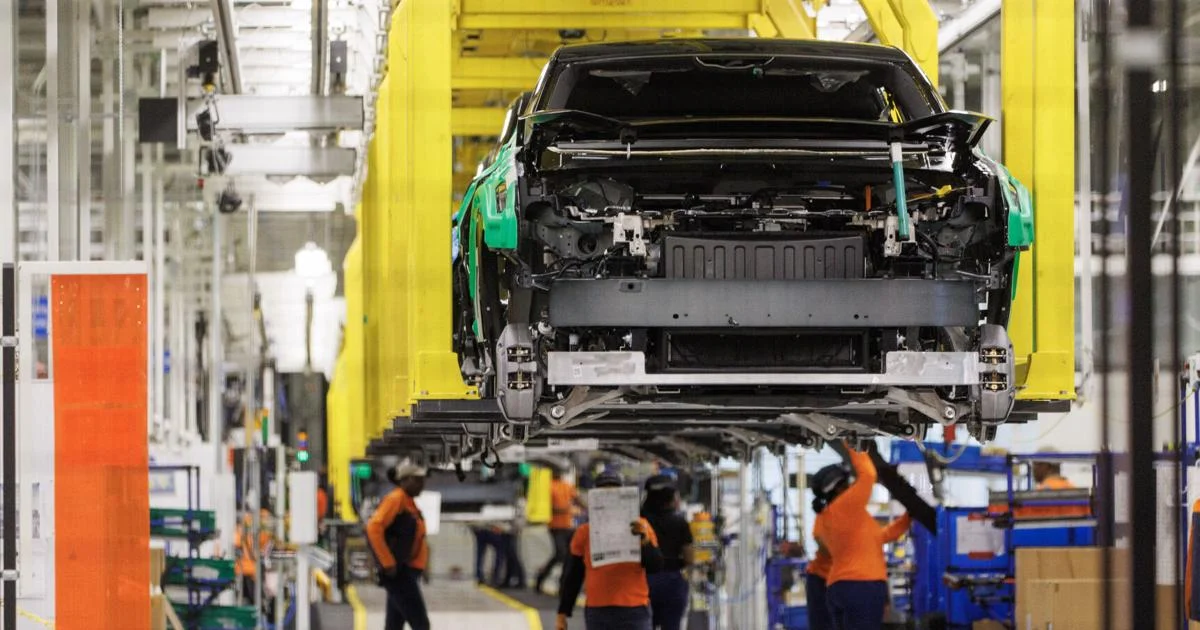
RIDGEVILLE – A decade after Volvo Cars began manufacturing in South Carolina, the automotive manufacturer is on an aggressive timeline to add a fourth car to production and double its workforce.
The Sweden-based company, which rolled its first car off the Lowcountry assembly line in September 2018, aims at adding a new hybrid vehicle, which has yet to be publicly named, to its lineup by 2030.
It will be the fourth product manufactured in South Carolina, which includes the fully electric EX90, the Polestar 3 and the midsize hybrid XC60, which was announced in July. Production of the S60, the first car assembled in Ridgeville, ended last summer.
With the hybrid’s addition, the manufacturer aims to supply 50 percent of the U.S. volume of Volvo sales, said Francesca Gamboni, chief industrial operations officer of Volvo Cars. Currently, the North America plant supplies less than 5 percent, she noted at Volvo’s 10-year celebration and media event in Ridgeville Sept. 23.
“When we align our local manufacturing to our customer needs, everyone benefits,” she said. “We can get cars into customers hands faster and more efficiently, prioritizing our American customers and increasing flexibility to adjust volumes based on local needs. We can support more local job and bring greater stability and consistency to our local workforce.”
Gamboni was joined by Volvo CEO Håkan Samuelsson; Luis Rezende, president of Americas for Volvo; David Stenstrom, vice president of manufacturing for the U.S.; Gov. Henry McMaster; and U.S. Rep. Nancy Mace, R-Charleston.
The S.C. plant has a capacity to manufacture 150,000 vehicles a year but has yet to hit the milestone. Today, vehicles take about 1.5 days to build with 240 stations. In total, the output is 100 vehicles a day. That’s about 26,000 vehicles a year.
Gamboni said the new XC60 should bring the plant to about 50-60 percent capacity, with the new hybrid taking it to 100 percent.
The production would also double the workforce of 2,000 to 4,000.
With Volvo’s goal to be fully electric by 2040, Gamboni said the plan is to localize more partners and suppliers to increase production, as well as to invest in technology.
“Our investment plans once again reinforce our long-term commitment to the US market and our manufacturing operations in South Carolina,” Samuelsson said. “This year, we celebrate 70 years of Volvo Cars presence in the United States. We have sold over 5 million cars there and plan to sell many more in years to come.”
At the event, Holstrom also announced he will step down at the end of the week, succeeded by Miguel Tavera — current chief supply chain officer.
To-date, Volvo has invested $1.3 billion into operations in South Carolina in the past 10 years, with vehicles manufactured stateside sold in the U.S. and overseas, mainly Europe. The Charleston plant today provides about 20 percent of vehicles for Volvo’s global sales revenue.



